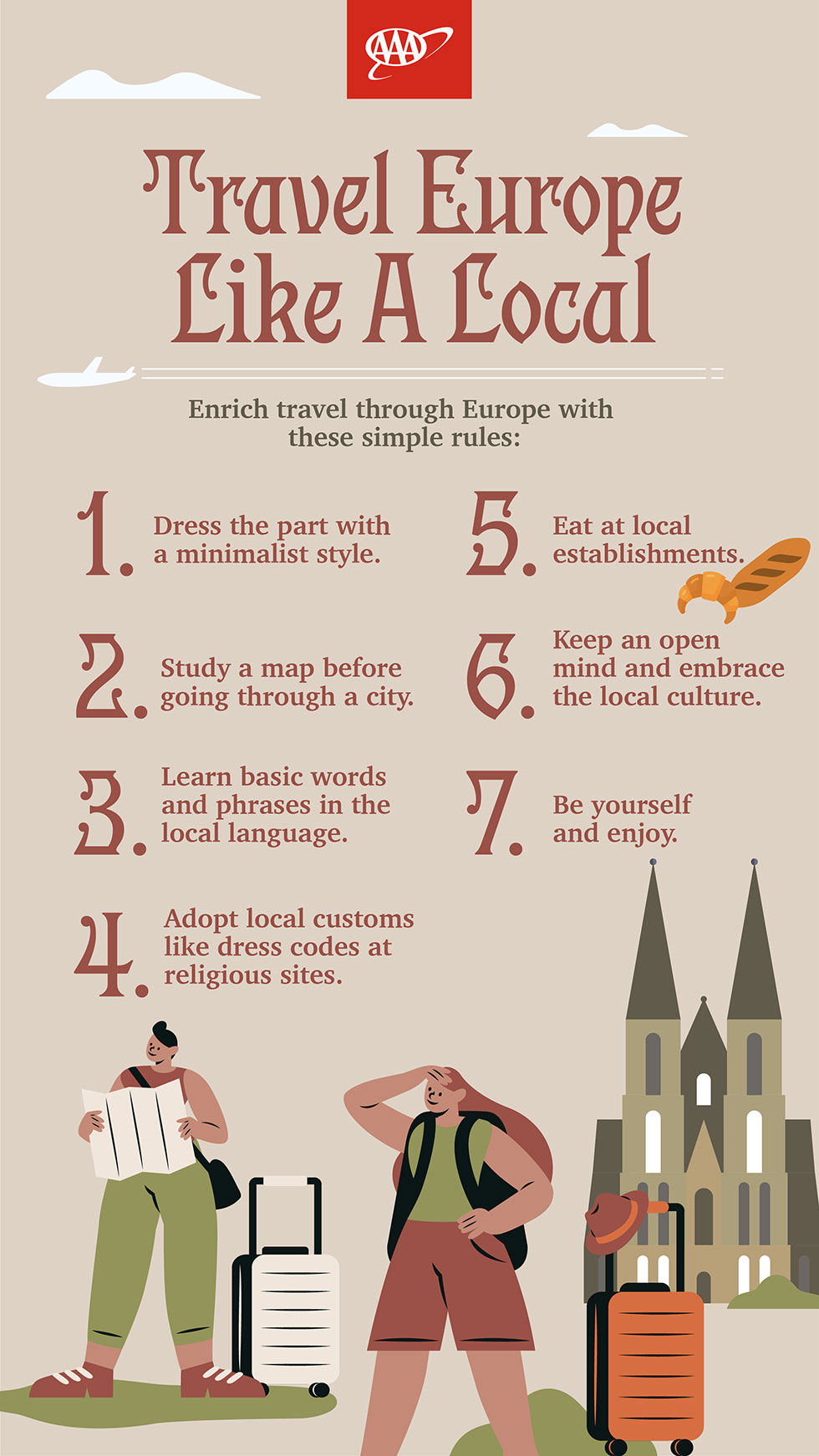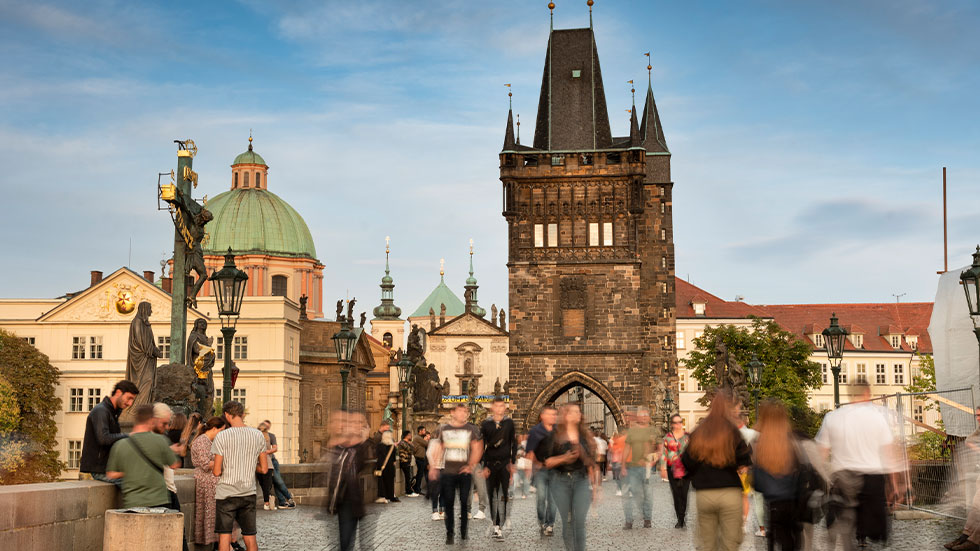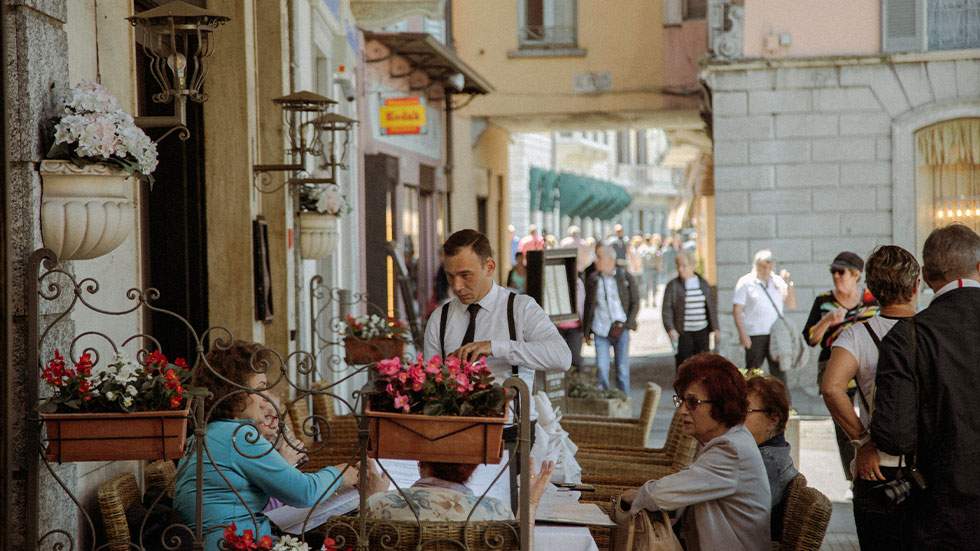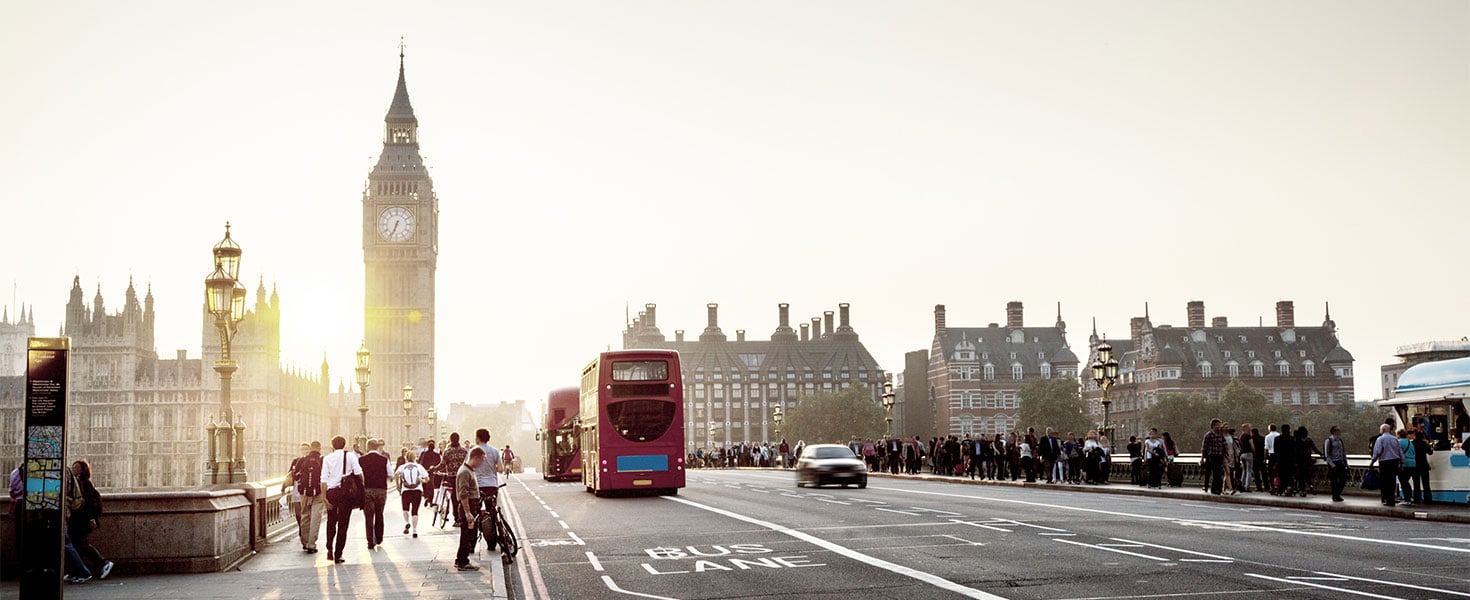

Europe is a traveler’s paradise—a rich and diverse tapestry of history, culture, language, and food. However, standing out as a tourist can make for a distinctly awkward travel experience. Here’s how to travel around Europe like a local. You’ll learn how to dress the part, learn the geography, get up to speed on the customs, and relax and enjoy new foods, new friends, and exciting new experiences.
Don’t worry—there’s no need to adopt a whole new personality or cram for any nationality tests. Whether you're wandering the cobbled streets of Rome or sipping espresso in a Parisian café, following these 7 simple rules will help you settle comfortably into your local surroundings and enjoy an immersive European adventure.

1. Dress the part
There’s nothing wrong with the way American tourists dress, of course. But generally speaking, Europeans—especially those in large cities—tend to embrace a more understated, minimalist style. If your goal is to inconspicuously explore Amsterdam’s famed museums or Prague’s Old Town Square, your best bet is to choose comfortable layers in neutral tones without a lot of flashy embellishment.
2. Grasp the lay of the land
It’s always a good idea to study a transport map before heading to a new city, especially if your destination is outside the U.S. After all, nothing screams “tourist” like circling crowded city streets while frantically staring at your phone.
Even longtime residents sometimes get lost in a big city, so take a cue from the locals if you get turned around. Pause someplace out of the way where you can observe street signs, landmarks, and the flow of traffic. If all else fails, there’s no shame in catching a bus or hailing a taxi. In fact, riding public transportation can be a great, low-pressure way to orient yourself with the geography.
3. Practice speaking
Even if you're not fluent, the willingness to try goes a long way in non-English speaking regions. Prepare for your trip by learning a few basic phrases like "hello," "please," and "thank you." Then, push yourself to use them as much as possible once you arrive. You'll be surprised how quickly your vocabulary grows, and it might even earn you a few unexpected perks from locals who appreciate the effort.
4. Adopt local mannerisms
From dress codes at religious sites to quiet hours in residential neighborhoods, cultural norms and regulations can vary drastically from place to place. In France, for example, it’s customary to greet with a kiss on the cheek. In Italy, leaving a large tip is considered crude and patronizing./ While these habits might seem odd at first, practicing these and other region-specific customs will help you blend in and prove that you’re not a stereotypical “rude American.”

5. Skip the big chains
Landing in a foreign country can be disorienting—especially at mealtime when your tummy’s starting to growl. You might be tempted to grab a quick bite at the first familiar chain restaurant you see, but it can rob you of an immersive, one-of-a-kind meal. Instead, let your tastebuds guide you past TGI Fridays to a hyperlocal bistro or eclectic food market for a culinary treat you won’t soon forget.
6. Keep an open mind
The key to satisfying global travel is to approach each new experience with respectful curiosity, pushing away any assumptions and fear of the unknown. When you step outside your comfort zone to embrace the culture and spirit of Europe, you’re sure to be rewarded in the form of new ideas, recipes, and lifestyle hacks to share with your friends and family back home.
7. Don’t let perfect be the enemy of good
Global travel isn’t about abandoning your nationality or shunning creature comforts that happen to be American. In fact, plenty of tourists make it their mission to check out every foreign McDonald’s to learn how the fare stacks up stateside—and that’s perfectly OK.
Learning often comes with discomfort—new foods, customs, languages and routines. That’s why at the end of the day, it’s important to be kind to yourself. With a little bit of research and curiosity, you’ll have everything you need for an unforgettable European adventure. Bon voyage!

